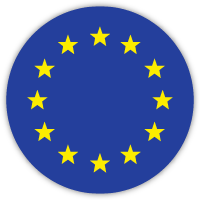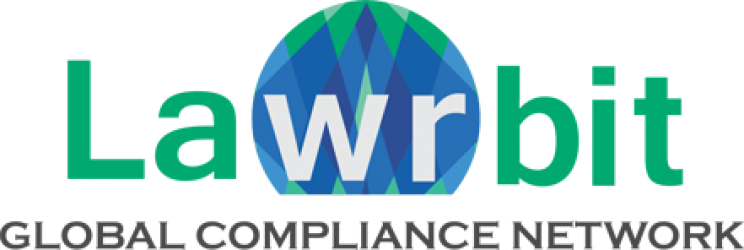The reliance on AI often necessitates access to sensitive data, raising legitimate concerns about privacy and robust data protection measures. If your business uses, develops, or integrates AI systems, the law sees you as responsible for making sure those systems follow the rules. That means:
- You’re accountable for how AI is used in your products or services.
- Even if you buy or license AI from a third party, you may still be liable if it’s misused or causes harm.
This article provides a comprehensive analysis of key AI and data privacy laws across the globe, including the European Union’s Artificial Intelligence (AI) Act, the General Data Protection Regulation (GDPR), the United States’ National Artificial Intelligence Initiative Act (NAIIA), and other regulations from the UK, Australia, and Canada.
Analysis of Global AI and Data Privacy Laws-
The enactment of AI and data protection laws in various countries has led to significant changes in how governments, businesses, and individuals approach artificial intelligence and data governance. Below is a brief of the impacts of these Acts in different regions:
-
European Union: The AI Act & GDPR

– AI Act
The European AI Act, proposed in April 2021, is the EU’s first comprehensive regulatory framework for AI technologies. It aims to ensure that AI systems are safe, ethical, and transparent. The Act classifies AI systems into four risk categories:
- Unacceptable Risk: AI systems that pose a clear threat to people’s rights, safety, or livelihoods. Banned systems such as social scoring by governments.
- High Risk: Includes critical applications like biometric identification, healthcare, and employment-related decision-making.
- Limited Risk: AI systems that require some transparency so users can make informed decisions. Examples include chatbots or virtual assistants.
- Minimal Risk: AI systems that pose little or no risk to users’ rights or safety. Systems like spam filters or recommendation engines.
Non-compliance can result in fines of up to €30 million or 6% of global turnover. The Act is expected to be enforced by 2025 and complements the GDPR by addressing sector-specific concerns related to AI while fostering trust in emerging technologies.
– GDPR
The General Data Protection Regulation (GDPR), effective since May 25th, 2018, is a landmark EU law designed to protect individuals’ personal data and privacy rights. Key provisions include:
- Explicit Consent: Organizations must obtain clear consent before collecting or processing personal data.
- Data Subject Rights: Individuals have rights to access, rectify, erase (“right to be forgotten”), and port their data.
- Privacy by Design: Data protection must be integrated into business processes from the outset.
Organizations must notify authorities within 72 hours in case of a data breach. Non-compliance penalties reach up to €20 million or 4% of annual turnover. Together with the AI Act, GDPR creates a robust legal framework that balances innovation with individual rights. -
United States: National Artificial Intelligence Initiative Act (NAIIA)

The National Artificial Intelligence Initiative Act (NAIIA), signed into law in January 2021 as part of the National Defense Authorization Act (NDAA), establishes a national strategy for AI research, development, and deployment. Key components include:
- National AI Initiative Office: Coordinates federal efforts on AI across agencies.
- AI Research Institutes: Advanced education and innovation in fields like healthcare, defense, and transportation.
The NAIIA emphasizes ethical considerations such as fairness, accountability, and inclusivity while promoting workforce development to meet the growing demand for AI expertise. It also addresses national security concerns by ensuring responsible use of AI technologies in defense and other critical sectors.
Penalties related to AI activities in the U.S. are typically governed by other federal laws and regulations. For instance, the Consumer Financial Protection Bureau (CFPB) fined Hello Digit $2.7 million in 2022 for using a faulty algorithm that caused overdrafts and penalties for its users, violating the Consumer Financial Protection Act. -
United Kingdom: Data Protection Act 2018

While the UK currently does not have any regulatory framework that codifies AI technology, the UK’s Data Protection Act 2018 (DPA 2018) implements GDPR provisions post-Brexit while ensuring alignment with EU standards. The DPA governs how personal data is collected, processed, and stored in the UK. Key features include:
- Individual Rights: Access, rectification, erasure (“right to be forgotten”), objection to processing, and data portability.
- Data Processing Requirements: Organizations must process data lawfully and transparently for specific purposes while implementing robust security measures.
- Special Categories of Data: Higher protection is required for sensitive data such as health information or political opinions.
Organizations must demonstrate accountability by maintaining records of processing activities and appointing Data Protection Officers (DPOs) where necessary. Breaches must be reported within 72 hours. Non-compliance can result in fines up to £17.5 million or 4% of global turnover. -
Australia: AI Ethics Framework

Australia’s AI Ethics Framework (2019) provides non-legally binding guidelines that promote ethical development and deployment of AI systems. Key principles include:
- Designing human-centric systems that prioritize safety and fairness.
- Ensuring transparency in decision-making processes.
- Accountability for outcomes through continuous monitoring and review.
Although not legally enforceable, the framework complements existing laws like the Privacy Act 1988 by encouraging organizations to responsibly handle personal data in AI applications. It prepares businesses for potential future legislation while fostering trust in emerging technologies. -
Canada: Artificial Intelligence and Data Act (AIDA)

Canada is advancing its Artificial Intelligence and Data Act (AIDA) to regulate high-risk AI systems while promoting responsible innovation aligned with global norms. Key features include:
- Emphasis on safety and human rights.
- Curbing reckless or harmful applications of AI technologies.
Additionally, Canada’s Directive on Automated Decision-Making establishes standards for federal use of automated decision-making systems. These measures reflect Canada’s commitment to fostering ethical AI development while protecting individual rights.
Impact of AI Law on Business Owners:
AI and data privacy laws such as the EU’s AI Act, GDPR, and similar frameworks in the US, UK, Australia, and Canada are fundamentally reshaping how private companies operate. These regulations require businesses to implement robust data governance, ensure transparency in AI operations, and maintain accountability through regular audits and risk assessment. For private companies, this means rethinking data collection, storage, and processing practices, often necessitating new investments in compliance infrastructure and legal expertise. Private businesses face increased operational complexity due to the need for robust data governance frameworks. They must ensure high-quality, unbiased data and transparency in AI operations. This includes regular audits, risk assessments, and the implementation of privacy by design principles. AI and data privacy laws are reshaping how private businesses operate and approach compliance. While these laws present challenges and costs, they also create opportunities for businesses to build trust with customers, enhance their reputation, and gain a competitive advantage. Private companies must prioritize compliance and implement robust data governance frameworks to navigate the evolving regulatory landscape effectively.
- Data Management Challenges: Stringent requirements around explicit consent, data minimization, and data subject rights create challenges. Private businesses must ensure that they obtain clear consent before collecting or processing personal data and respect individuals’ rights to access, rectify, erase, and port their data.
- Impact on Innovation: AI and data privacy laws can impact innovation by limiting how private companies use data for AI development and business intelligence. Companies must navigate complex regulatory requirements while still driving innovation and growth.
- Reputational Risks: Non-compliance and data breaches can lead to significant reputational damage. Customers are increasingly concerned about data privacy, and regulatory breaches can erode trust and lead to competitive disadvantage.
Conclusion
AI has revolutionized legal compliance, particularly in data security, by offering substantial advantages such as increased productivity, enhanced accuracy, reduced operating costs, and real-time threat detection. It empowers businesses to better protect sensitive data, proactively manage risks, and expedite compliance procedures. AI enhances security and aids in maintaining compliance with changing laws like the CCPA and GDPR by automating processes like data classification, encryption, and audits. There are also significant obstacles to incorporating AI into data security regulation, such as privacy concerns, biases in AI judgment, and regulatory gaps. These issues need to be carefully managed to guarantee that AI is applied morally and by the relevant regulations. Businesses must take a balanced approach, putting strong governance procedures in place to reduce risks and take advantage of AI’s potential. Legal frameworks must change as AI technology develops to handle new moral, legal, and regulatory concerns and guarantee that AI’s full potential is achieved without sacrificing accountability, privacy, or justice.
Disclaimer
The information provided in this article is intended for general informational purposes only and should not be construed as legal advice. The content of this article is not intended to create and receipt of it does not constitute any relationship. Readers should not act upon this information without seeking professional legal counsel.


